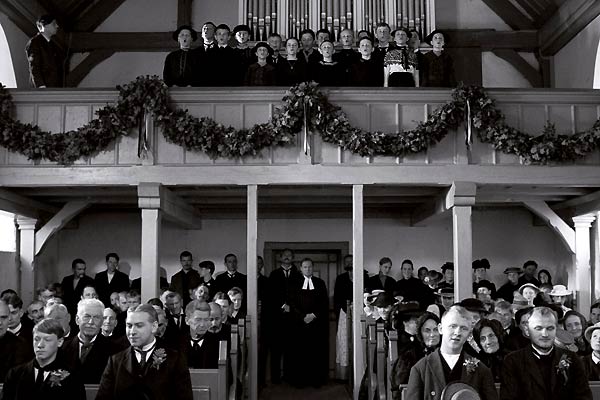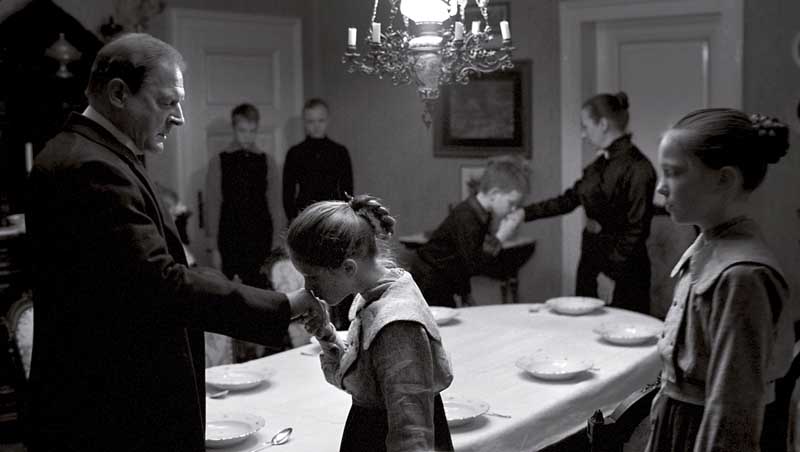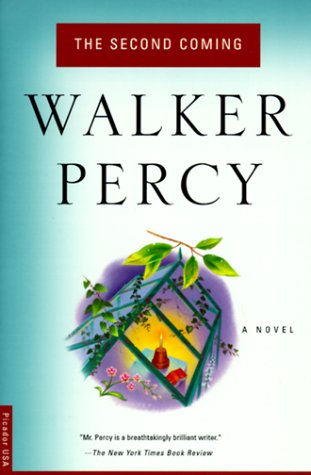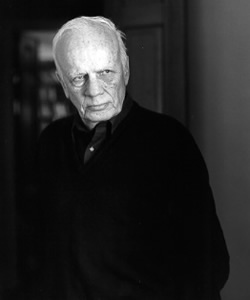
Filmmaker of the Decade: The resurgence of the Nouvelle Vague highlights the most disquieting feature of the decade: the critical search for a new European art-house auteur, which seems to have settled on the pious admonisher, Michael Haneke. European cinema has finally found its Stanley Kramer.
—Film Comment, January-February 2010, p. 31 [1/15/10]
 Read more
Read more
From The Soho News, July 9, 1980. –J.R.

The Second Coming
By Walker Percy
Farrar, Straus & Giroux, $12.95

If reading Faulkner is sometimes like going on a desperate and delicious three-day bender, perusing the clear-headed work old Doc Percy — a practical-minded (if nonpracticing) Southern M.D., now in his mid-60s — is usually more like taking a healthy antidote the next morning, and recovering one’s senses with dry irony and mordant wit. At least it has seemed that way up until now, to a Southern expatriate like myself who cherishes both writers (and a fellow moviegoer who appreciates what these very different noble Southern novelists have learned to steal from movies).
But The Second Coming — Percy’s fifth novel, after The Moviegoer, The Last Gentleman, Love in the Ruins and Lancelot — happily makes hash of this conceit by offering both pleasures in succession, the night before and the morning after, without so much as a hangover. How does Percy do it? Partially, I think, by splitting himself in two, like any self-respecting Gemini, and then making music out of his intertwining, alternating voices that ultimately merge: an old-fashioned love story, and one with a happy ending. Read more
Tracy Young, my editor at Soho News in 1980-81, accorded me an unusual amount of freedom and a minimum of editing (which often amounted to the same thing), but she didn’t allow me to publish this article, written in July 1981. She approved it in principle when I proposed it, then refused it after it was written — the first and only time this happened during my year and a half on this weekly paper, where I was working as both a film and book reviewer. Later on, she wound up ripping out (or, in capitalist terms, salvaging) the reviews of Zorro, the Gay Blade and Heart to Heart, and running them on August 4, 1981 with Seth Cagin’s review of Victory, under the title “Transcendental Cuisine,” without explanation.
At the suggestion of Straub and Huillet themselves, this article was later included in a 20-page tabloid-size publication that I edited about their work to accompany the first (and, I believe, to date, only) full U.S. retrospective of their work, which I curated, at the Public Theater in New York, from November 2-14, 1982, which also included ten programs consisting of films by others that they selected to run with their own work, ranging from Blind Husbands to Antonio das Mortes to A King in New York to Civil War (the John Ford episode in How the West Was Won, shown with A Corner in Wheat and Land without Bread), and including several appearances by and discussions with Straub and Huillet. Read more




